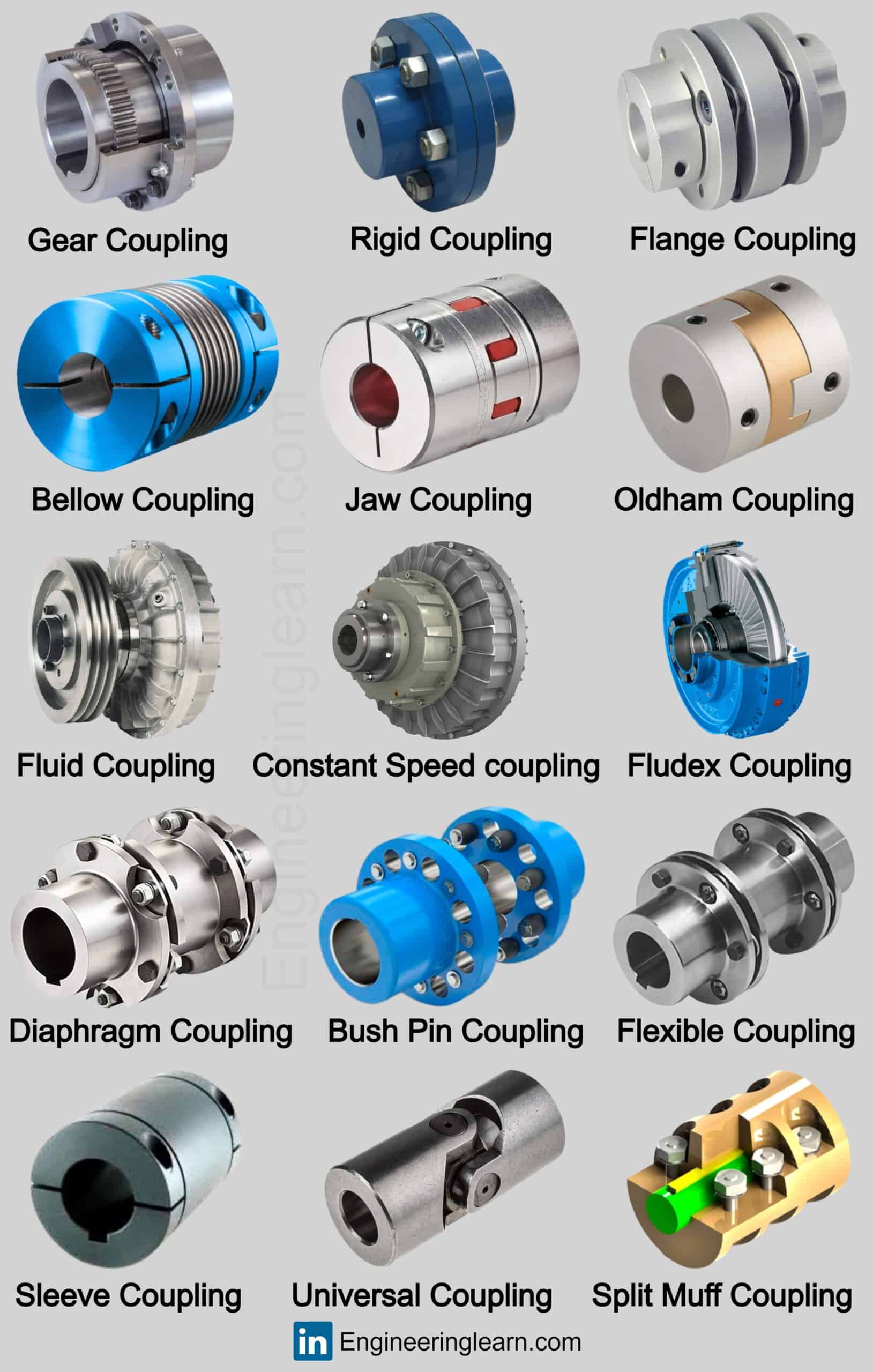
Types of Mechanical Coupling and Their Uses [with Pictures] Engineering Learn
Basic Types of Coupling Rigid Coupling- Cannot tolerate misalignment between the axes, Do not absorbs shocks, Simple & inexpensive Flexible coupling - Elements like bush or disk is used, which tolerate 0.5 degrees of angular misalignment, Absorbs shocks and vibrations, Costlier than Rigid coupling Rigid Couplings Muff Coupling
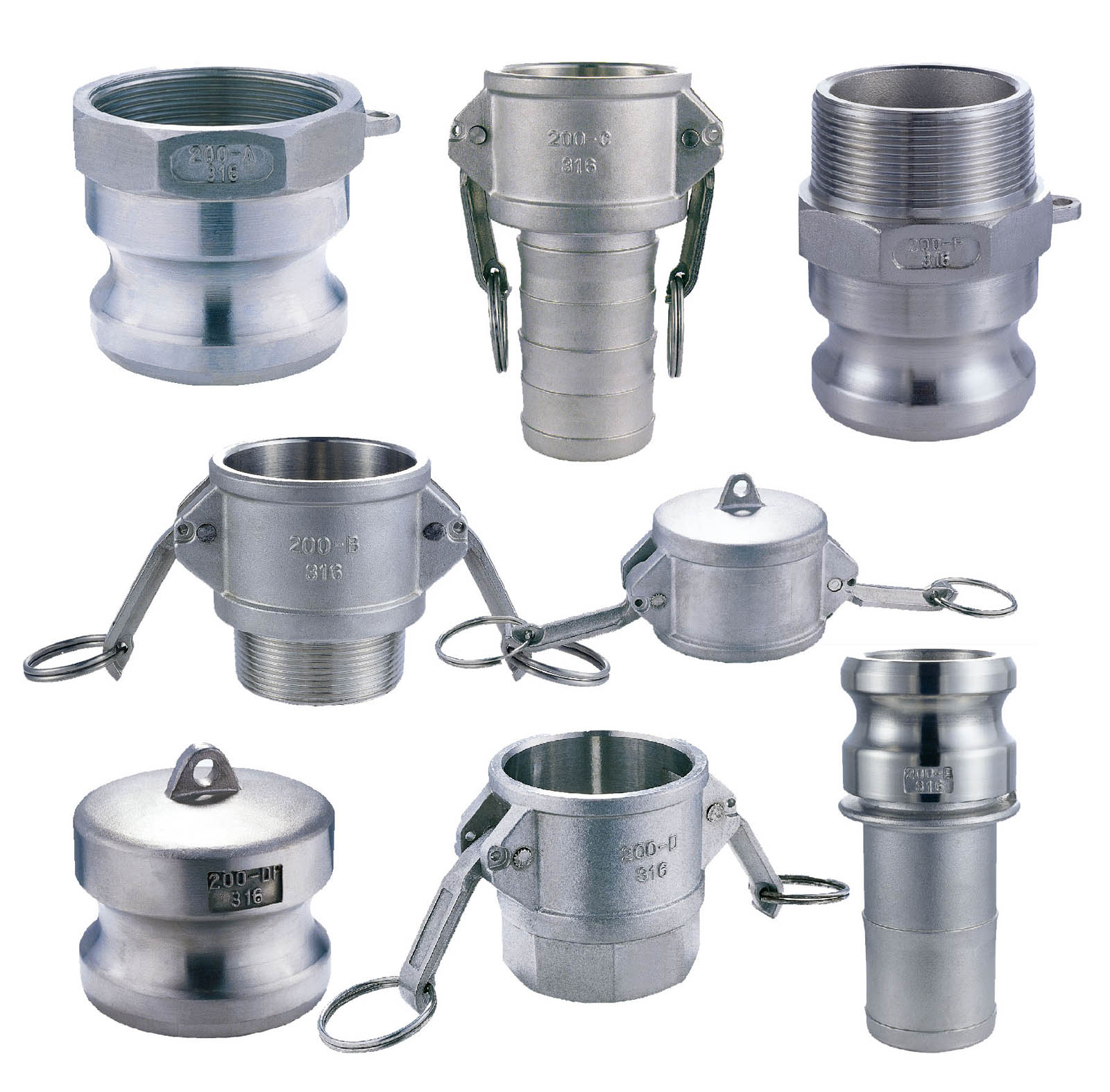
Types of Stainless Steel Camlock Couplings Global Transmission
For mechanical flexibility. Absorbs the transmission of shock loads from one shaft to another shaft. Protection against overloads. Types of Coupling Following are the different types of coupling: Rigid Coupling Sleeve or muff coupling. Clamp or split-muff or compression coupling, and Flange coupling Flexible coupling Bushed pin-type coupling,

Mechanical Flexing Couplings
acteristics for various coupling types. To be used in determining which coupling type or style may be best suited for an application. General notes: The preceding table is a general com - parison of the SKF range of couplings. The values, where shown, are based on the best or highest value and may not represent the entire size range. Check

Elastomeric Couplings PU based Flexible Couplings
Power transmission Shock and vibration absorption Misalignment accommodation Heat flow interruption Overload protection Power transmission The primary purpose in most cases is power and torque transmission from a driving shaft to a driven shaft — for example, a coupling connecting a motor to a pump or a compressor. Absorb shock and vibration
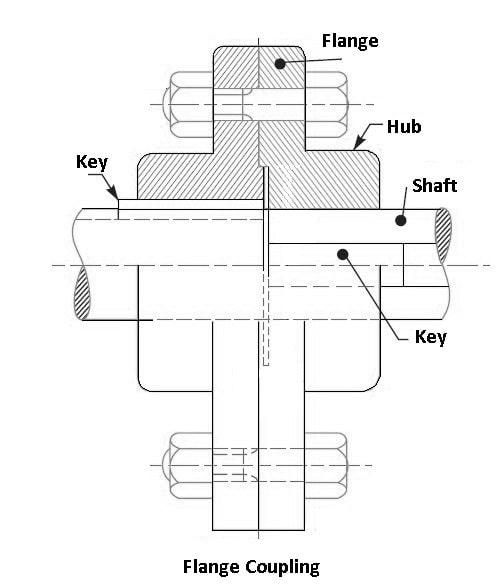
13 Types of Coupling Definition, Drawings, Uses & (PDF)
COMPACT ELASTIC COUPLING "GEC" CHAIN COUPLING "GC" RIGID COUPLING "GRI" JAW COUPLING "GAS" Torsionally rigid disc coupling. with . angular backlash free transfer of motion. Transmission and maximum flexibility in operation. Available with personalized spacer. Max torque 130 KNm - Max bore ø205 mm. Backlash free jaw coupling.

Types Coupling PDF
March 31, 2023 14 minute Read by Noaman Adenwala Contents Introduction What is a Coupling? Main uses of Coupling Types of Couplings Rigid Couplings Sleeve or Muff Coupling Advantages of Sleeve or Muff Coupling Disadvantages of Sleeve or Muff Coupling Applications of Sleeve or Muff Coupling Clamp or Split-Muff or Compression Coupling
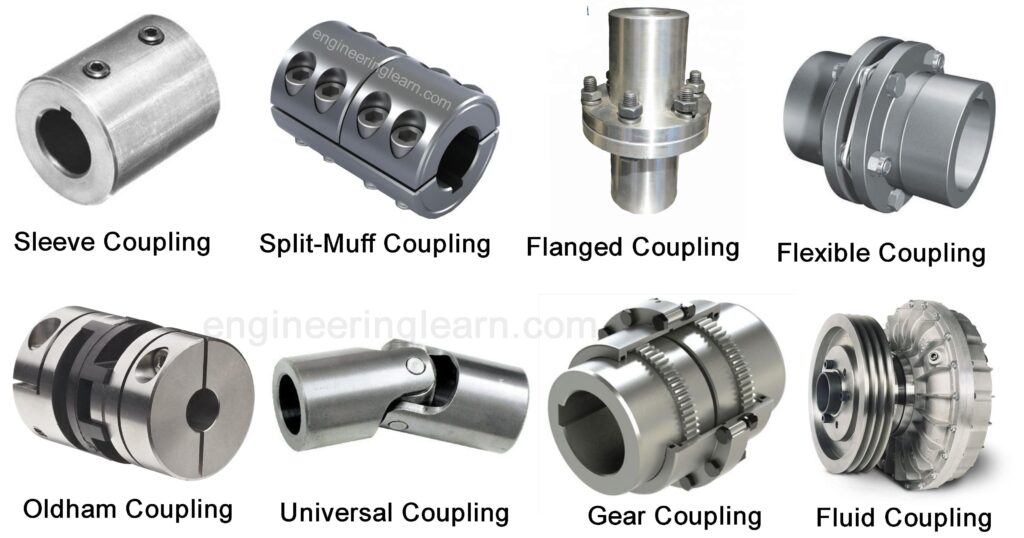
Types of Mechanical Coupling Engineering Learner
Flexible couplings are used mostly in centrifugal horizontal pump applications. Rigid Coupling A rigid coupling is used to join two shafts together with extremely little or no misalignment and of course transmit torque. Rigid coupling are used in mostly vertical mounting applications.
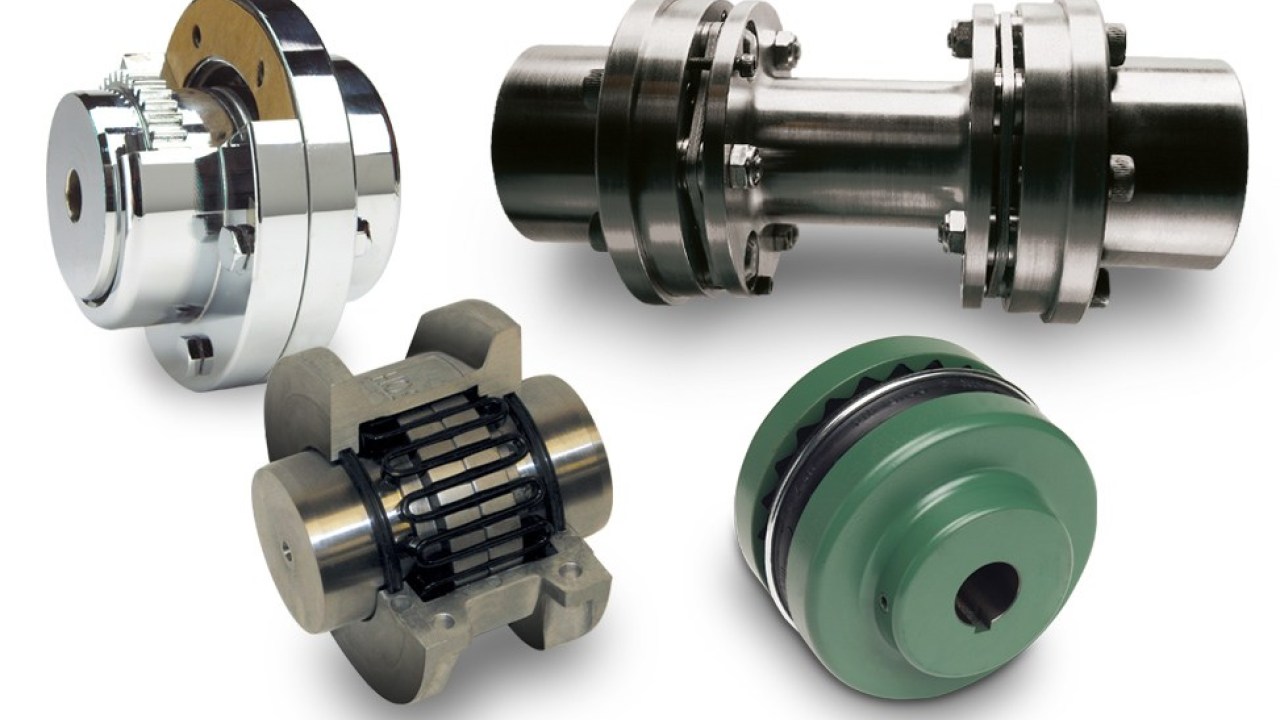
9 Different Types of Couplings and Their Application Hi Boox
Following are the different types of coupling: Rigid Mating Casing or moldy coupling. Clamp or split-muff or compressing coupling, and Flange coupling Flexible couple Bushed pin-type interface, Universal coupling
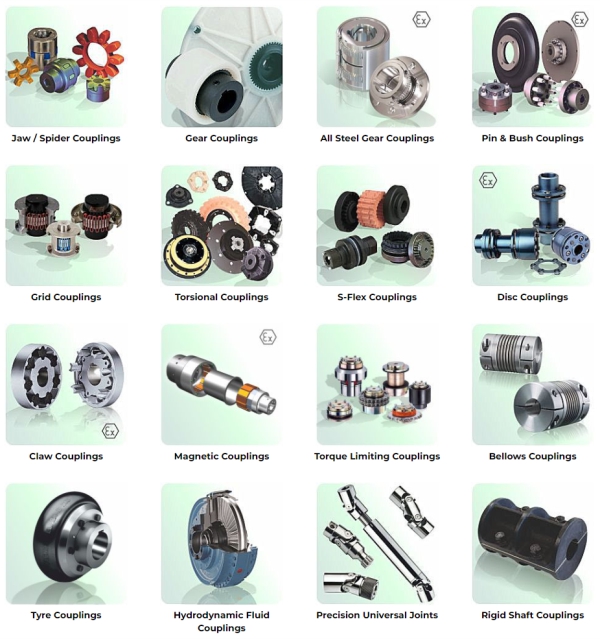
Mechanical power transmission coupling design types
[PDF] #6 Bushed Pin-type Coupling. This is used for slightly parallel misalignment, angular misalignment, or axial misalignment of the two shafts. It is a modification of the rigid flange coupling. It consists of two halves that are dissimilar in construction and bolts known as pins, rubber bushes which are used over pins..
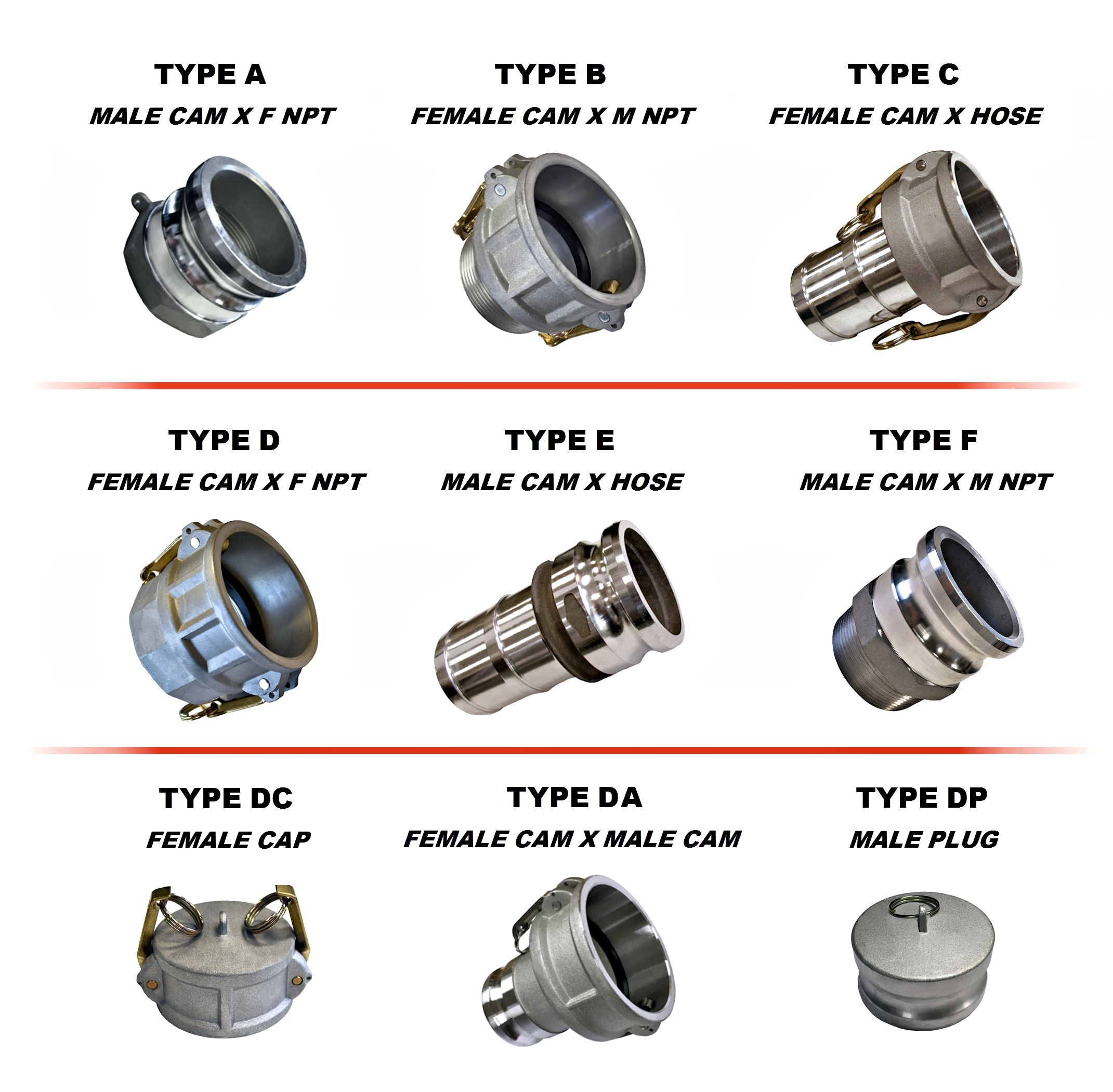
Different Types Of Couplings
Couplings can be made from a number of different materials. The material used depends on what application the coupling will be used for, the quality of the coupling, and how much the user wants to spend. We have listed the most common materials below: Aluminum. Steel. Acetal.
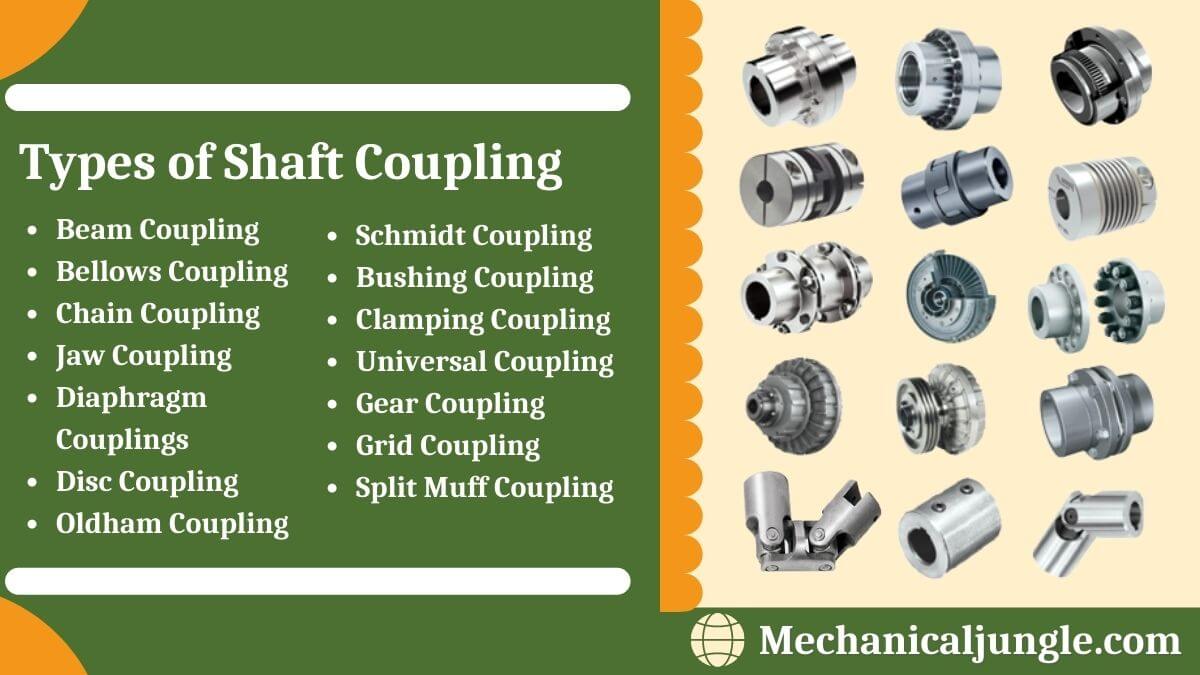
Types of coupling in mechanical engineering. Mechanical Engineering Flange Coupling. 20221027
Table of Contents Categories of Pipe Coupling Pipe Couplings Types Pipe Coupling Materials How to evaluate the couplings? Steel Pipe Coupling Carbon Steel Pipe Coupling Stainless Steel Pipe Coupling Differences between Full Coupling and Half Coupling Difference between Pipe Coupling and Union

Different Types of Couplings and Their Applications Explained Mechanical engineering design
Following are the different types of coupling: Rigidly Coupling Sleeve or muff coupling. Clamp or split-muff or compression coupling, and Flange linking Flexible coupling Bushed pin-type clutch, Universelle coupling Oldham coupling
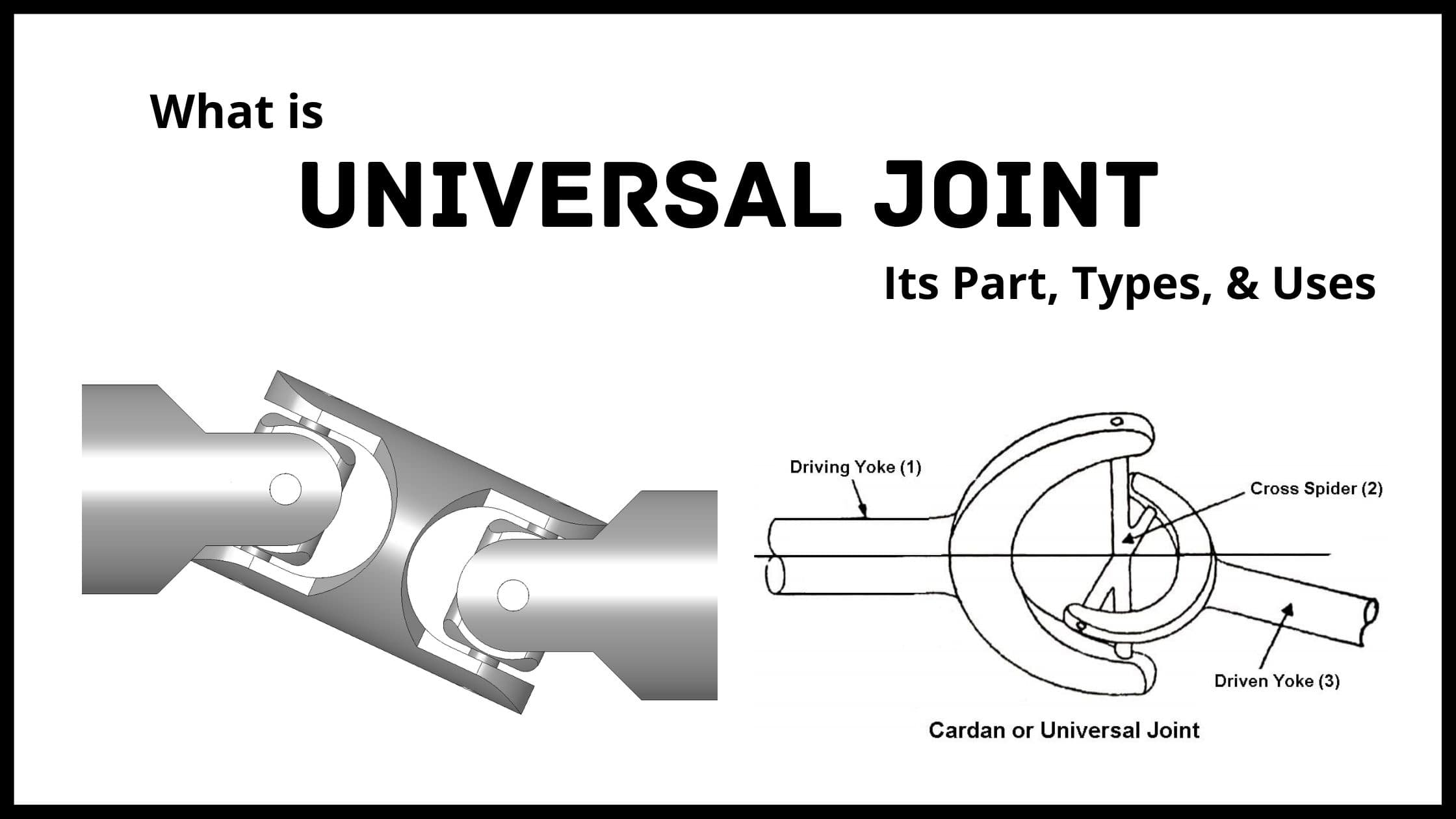
universal coupling drawing pdf howtostyleasweatervestkorean
To introduce protection against overloads. To reduce the transmission of shock loads from one shaft to another by using flexible couplings. Types of Couplings- Here are the different types of couplings which are most widely used in industries and machines- 1.Muff or Sleeve coupling Sleeve coupling with labelled parts
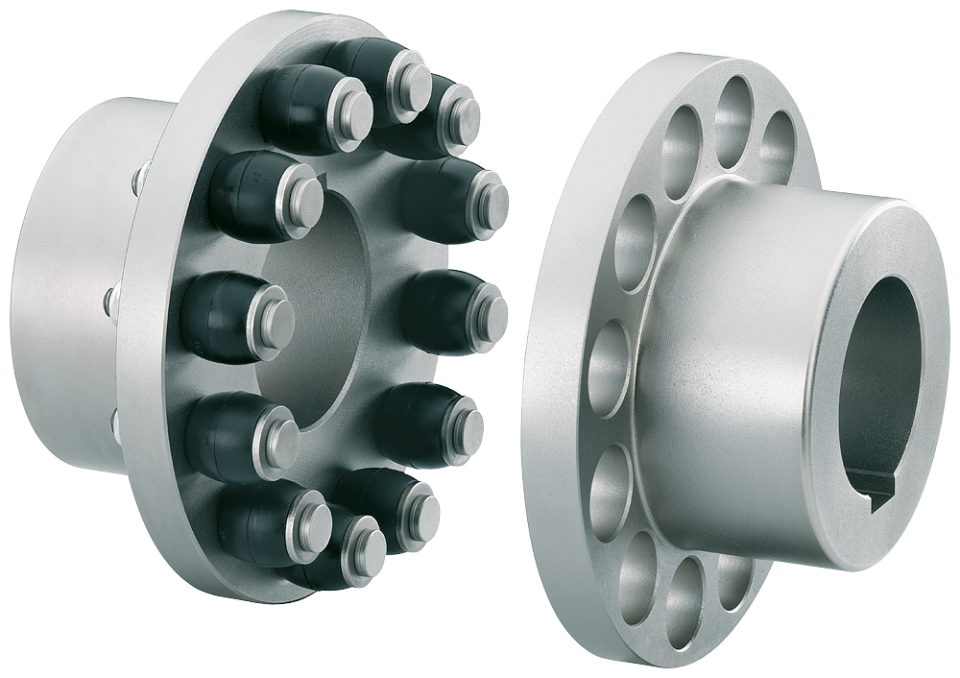
Bush Pin Type Flexible Coupling manufacturer in India MSB India
closed coupling valve. Twist Lock: A locking arrangement which requires a rotational actuation to unlock the mating halves. Types of Quick Disconnect Coupling Valve: Straight-Thru (ST): This provides straight through flow. Double Shut-off Valve (DSO): A valve in the female half and a valve in the male half.

Common types of coupling Student Lesson
What Are The Different Types Of Coupling? Couplings depending on the alignment accuracies of the system and torque requirements can be generally categorized into three varieties: Rigid, Flexible, and Fluid which are used to transmit power.

What is Coupling? Definition, Types, and Uses Engineering Choice
The followings are the common types of couplings: Rigid Coupling Sleeve or muff coupling. Clamp or split-muff or compression coupling, and Flange coupling. Flexible coupling Bushed pin-type coupling, Universal coupling, and Oldham coupling. Gear coupling Bellow coupling Jaw couplings Diaphragm couplings Fluid Coupling Constant speed coupling